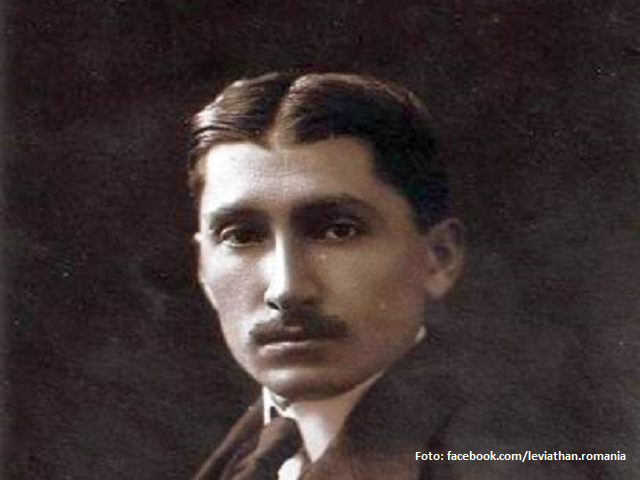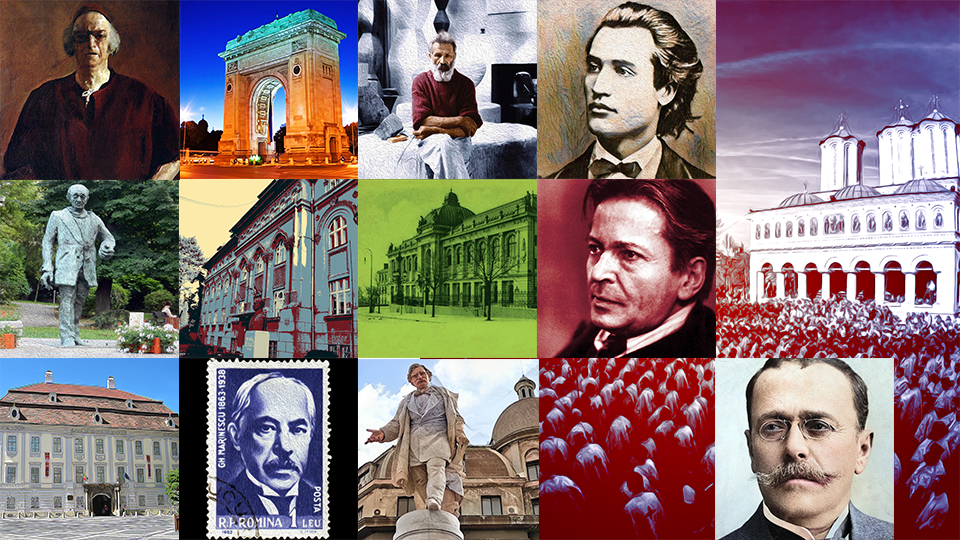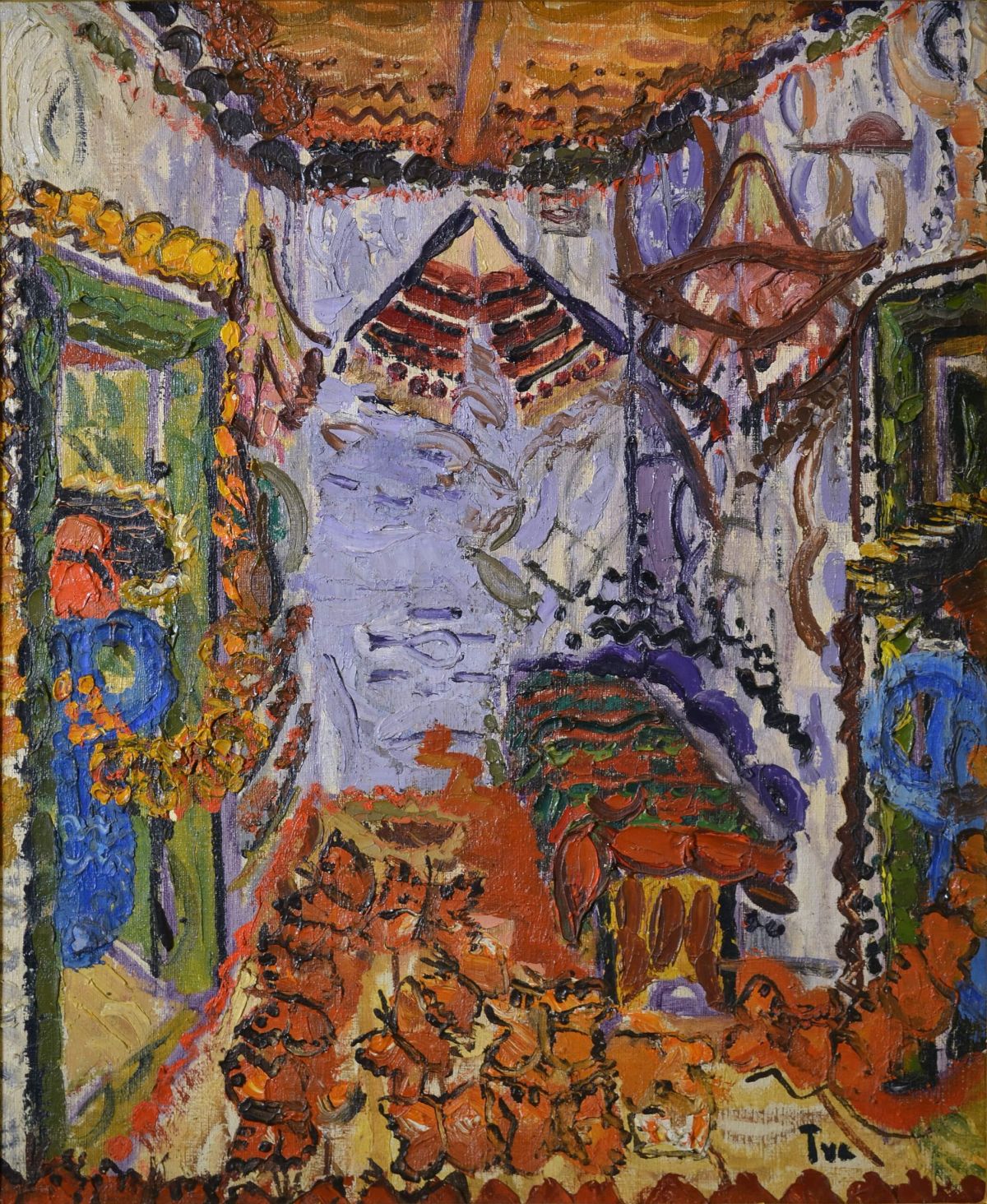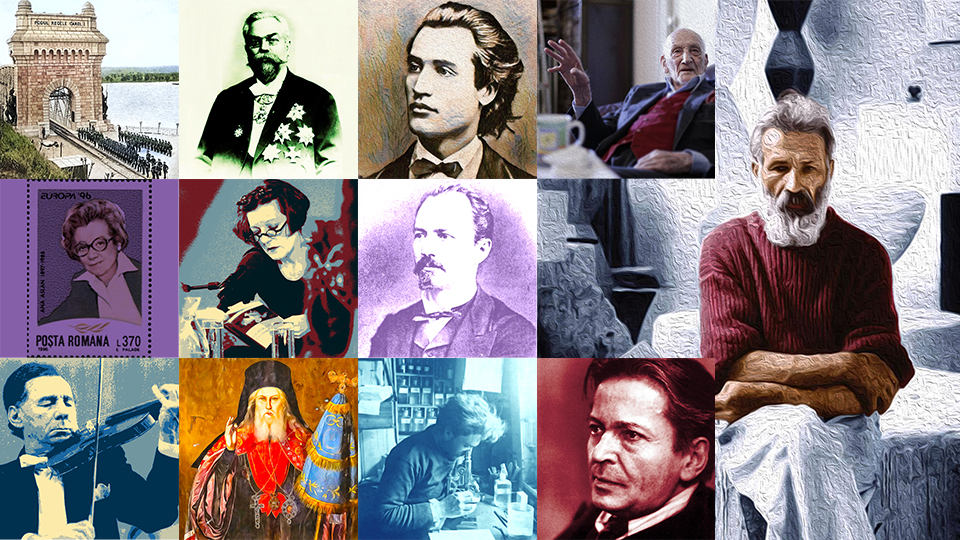Urmuz, an author of the absurd
Urmuz is one of the most important Romanian avantgarde writers.

Christine Leșcu, 05.04.2020, 14:00
Urmuz’s real name was Demetru Dem.
Demetrescu-Buzău and he was born in March 1883 in the small central town of
Curtea de Argeș. A forerunner of
surrealism and the literature of the absurd, Urmuz was an enigmatic and bizarre
figure, just like his literature, which was aesthetically captivating despite the
fact that the words didn’t seem to make much sense. The literary critic and historian
Paul Cernat tells us more about Urmuz’ odd personality:
Urmuz was a
lonely and shy man, whose life was just as bizarre as his life. It appears that
he first trained to become a doctor but gave up because during dissections, he’d
get a fright when he would pinch the dead bodies and they wouldn’t react. So he
took up law instead and became a clerk at the Court of Cassation. He also concerned
himself with music, being an amateur composer in his free time and writing
music to entertain his family, as one of his sisters recounted. Unfortunately,
his music scores have not survived, having been lost in the 1960s. Literature
was a secret passion of his, even more so than music. He knew the writer and
poet Tudor Arghezi, who gave him the penname Urmuz and who published his work.
In fact, the only works Urmuz would ever publish appeared thanks to Arghezi in
the magazine Cuget românesc, a very traditionalist publication,
ironically. This was in 1922. Urmuz committed suicide in 1923, shooting himself
in the bushes on the side of a popular street in the north of Bucharest where
people often went for walks. The reason is unclear, and there were speculations
about an unhappy love affair or a terrible disease that no one knew about. The
many stories that circulated around Urmuz’ enigmatic, secretive and
subterranean personality eventually turned him into something of a myth. This myth
is very much alive today and is the foundation of the Romanian literature of
the absurd.
Urmuz’s dull existence as a clerk and his unexplained
suicide combined with his apparently absurd works have contributed to the
fascination he still exerts on his readers, who wonder if there’s a connection
between his literature and his life. Critic Paul Cernat elaborates on this:
He was a strange man who liked to play but
who also probably had some traumas. He was compared with Kafka, based on their
relationships with their fathers. In reality, however, we don’t know very much
about him, in fact we know very little, and any speculation is plausible. As
far as Urmuz was concerned, there was a split between his public identity and
his private, secret identity, between his public image as a dull clerk and his
identity as an anarchic writer whose work was breaking all the rules of
literature at that time. Despite their anarchic and absurd appearance, his
works were very polished and the result of painstaking effort. Urmuz was like Flaubert,
paying attention to every word and the orchestration of his little texts.
Even the two texts published during his
lifetime, Algazy and
Grummer and Ismaïl and Turnavitu had been chiselled up to the very last
minute before publication. According to Tudor Arghezi, Urmuz wanted to change
some words even after they were sent to the printers. Critic Paul Cernat:
Urmuz’ small but explosive
body of work became really known after his death, some of it appearing in the
1920s in the Contimporanul
magazine published by Ion
Vinea and Marcel Iancu. But most of his work appeared in UNU magazine, being published by
the writers Sașa Pană and Geo Bogza who in the 1930s contacted Urmuz’ sister, who
had a chest full of his manuscripts. They published whatever they found there
and which hadn’t been published before. And it seems there’s still more to be
published. (…) A lot has been lost, but what we do have is more than enough to
ensure Urmuz a status he would never have dreamt of.
Urmuz had a great influence
on the generation of avantgarde writers after the First World War and beyond. Tudor
Arghezi’s prose was also influenced by Urmuz. The generations of post-1965
writers, the so-called Târgoviște school and the poets Marin Sorescu and Nichita
Stănescu also showed the influence of Urmuz, which can even be traced in today’s
post-modernist literature.






























